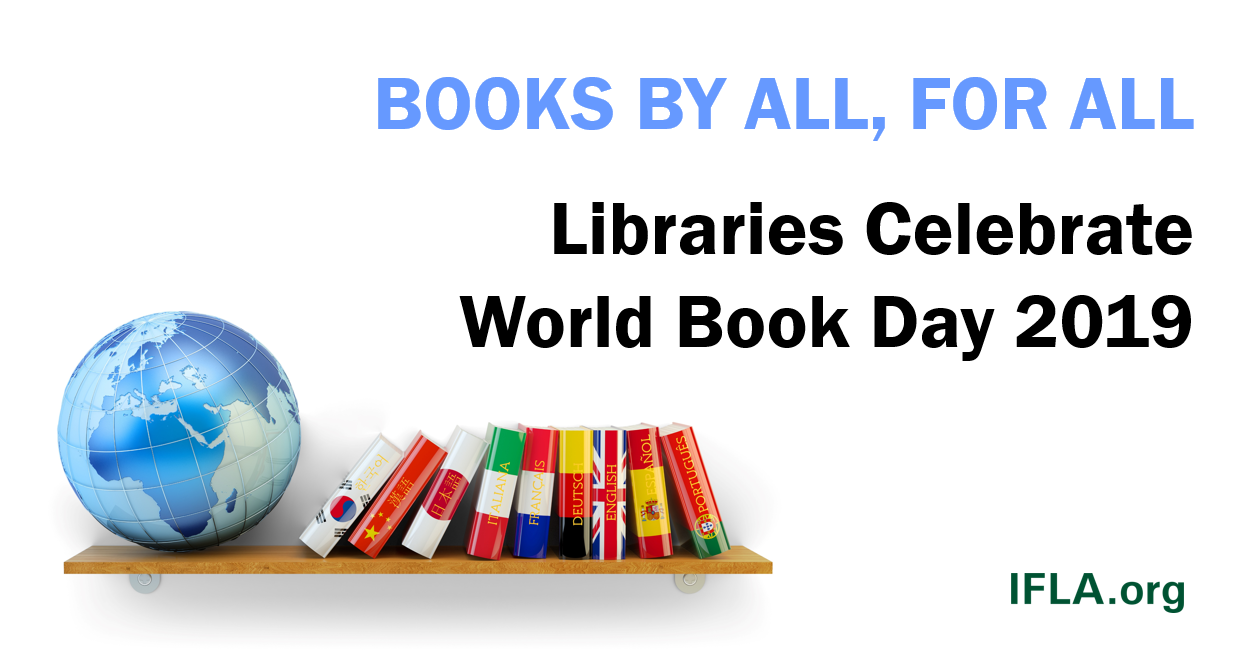
Books have long played – and continue to play – a key role in recording the past, sharing knowledge, and creating inspiration. World Book Day offers an opportunity to celebrate this contribution to knowledge and culture.
In 2019, there is a particular focus on indigenous languages, given the International Year. This is a reminder of the importance of thinking about how books as a means of preserving and sharing all cultures.
For libraries, this diversity of production is key. As institutions with a mission to meet the needs of all members of their communities, there is a strong interest in supporting and promoting local production, in all languages spoken by users.
To celebrate World Book Day 2019, therefore, this blog explores the reasons why it is so important to make this a day for all readers and writers in all cultures.
Books By All
Traditionally, the cost of printing presses and the need to run distribution networks have meant that publishing has been an expensive business. Publishers have given different voices access to these opportunities, bringing their voices to the world.
However, for those who do not manage to find the support of a publisher, the opportunities have been much narrower. Writers who are only likely to reach a small audience – because of the subject, or the language – of their works have had fewer possibilities.
This is of course changing, with technology offering new possibilities to self-publish, or to set up smaller independent operations which help new and diverse voices reach public attention.
These new options complement the existing landscape, allowing for a more diverse range of books to reach the market.
Clearly new writers need support, especially when they don’t benefit from the sort of support that a publisher will often offer.
While libraries clearly can’t provide an advance, they do offer a number of other key services – classes in creative writing, free research possibilities, and in some cases a showcase for local talent.
We will be exploring some of these means of supporting new authors in a session at WLIC this year.
Books For All
It does not make sense to talk about World Book Day without a focus on access. Indeed, to look only at the production of books would run counter to the universal mission of UNESCO, the organisation that set it up in 1995.
Copyright has made it possible for the (intangible) content of books to be treated in much the same way as a physical (tangible) object, and allowed for the creation of the type of market for books that we see today.
However, there is the risk of failure. Traditionally, market failures happen when the full benefits (or costs) of an action are not taken into account by the actor.
This can be the case with books, for example where someone may not have the money to buy a book, but there are clear benefits to society as a whole from them having access (to learn, to research, to discover new opportunities).
Libraries already have a key role in overcoming such failures by providing access to knowledge and culture.
Complementing markets – which continue to sell copies of books to those who can afford them, and want to enjoy them forever – they ensure that everyone has the chance to gain from what books have to offer.
This is as important in cities in major developed countries as in rural communities speaking indigenous languages.
With World Book Day 2019 focusing on the importance of indigenous languages, and 2019 being the year that SDG 10 (Reducing Inequalities) is in focus at the United Nations, it is a great opportunity to remember that this can only be a truly global event if it looks at books by all, for all.
Libraries are key to making this a reality.